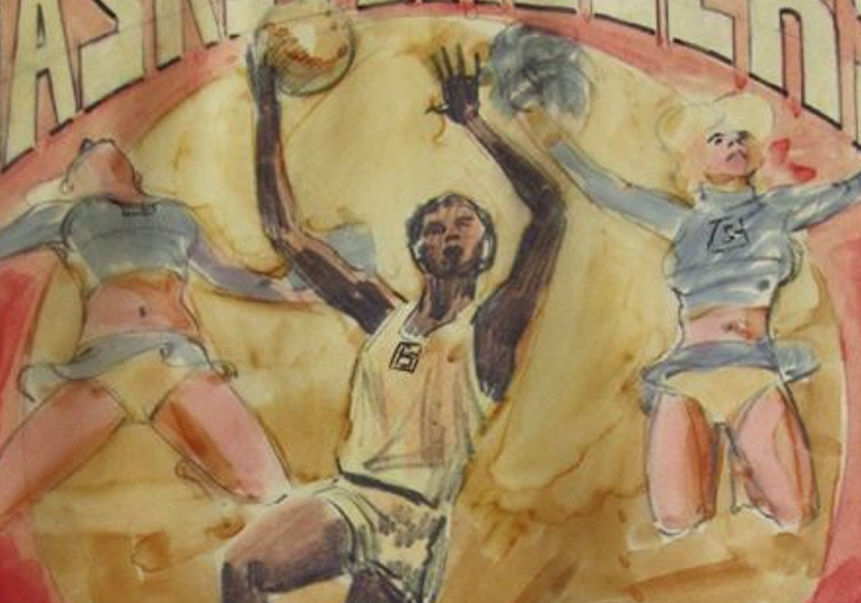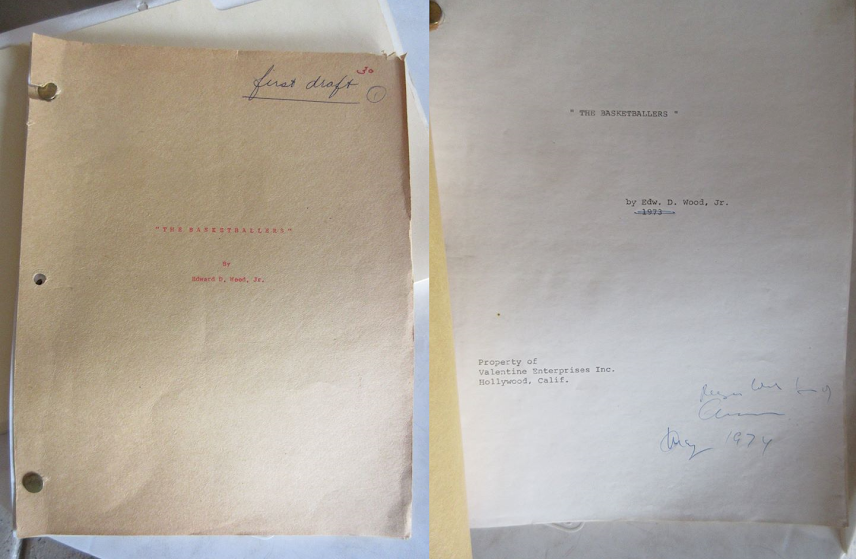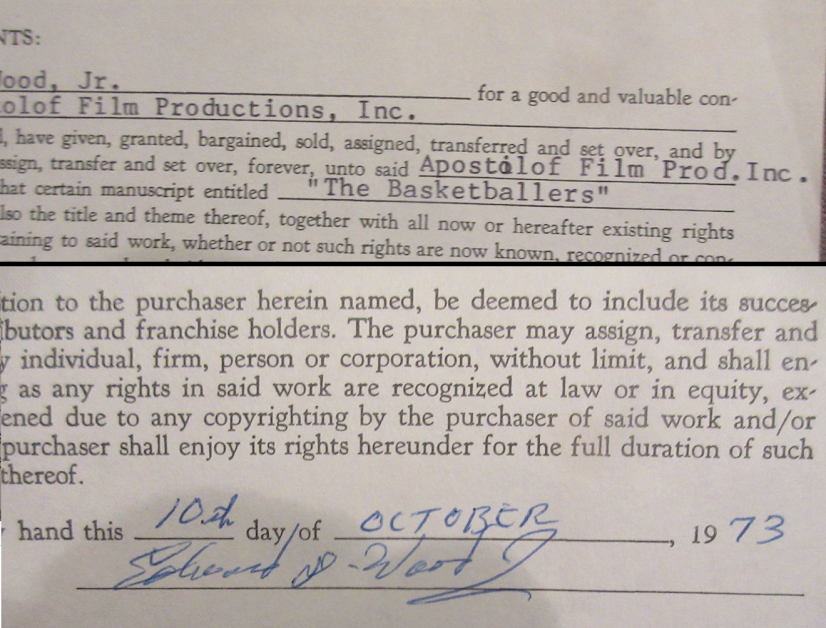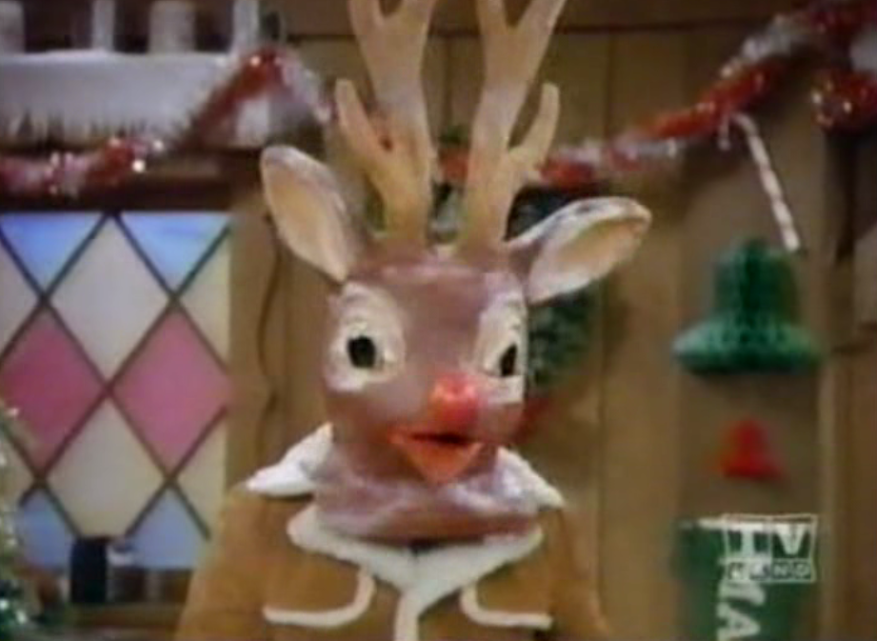 |
| Jerry Seinfeld, Michael Richards, and an unknown extra on Seinfeld. |
Some advent calendars last 24 days, others 25. Technically, the season of advent ends on Christmas Eve, so my obligation to this verkakte series ended yesterday. However, as it happens, the weather this Christmas weekend has stranded me in my apartment with little to do, so you're getting a 25th day of Ed-Vent. Lucky you.
On the
third day of this series, I reviewed "The Chinese Restaurant," a 1991 episode of NBC's
Seinfeld in which the characters attempt to attend a one-night-only showing of Ed Wood's
Plan 9 from Outer Space (1957) but do not succeed. Unfolding in real time in one location, this highly unusual episode proved to be a turning point in the sitcom's history. It also gave Ed's most famous film some of its most mainstream exposure ever. That
Seinfeld has been seen by millions of people for over 30 years. Surely, at least some of those viewers must have been curious enough to track down
Plan 9.
Running gags and callbacks were the lifeblood of Seinfeld, so it's not surprising that the show eventually returned to Plan 9 in an episode called "The Postponement." It took four and a half years, though, and those were four and a half eventful years. When "The Chinese Restaurant" debuted, Seinfeld was struggling through its second season, barely avoiding cancellation. By the time "The Postponement" aired on September 28, 1995, Seinfeld was in its seventh season and one of the most popular shows on television, airing as part of NBC's powerhouse Thursday night lineup alongside other smash hits like Friends and E/R.
In some ways, "The Postponement" shows how
Seinfeld had evolved from its primitive early days. The iconic wraparound segments with Jerry (Jerry Seinfeld) performing standup comedy had mostly been jettisoned, for instance. Starting with the 1994 episode "The Big Salad," the show started filming more outdoor scenes on the famed
New York Street set at CBS Studio Center in Los Angeles. Now, instead of showing Jerry doing standup,
Seinfeld preferred to show its characters walking down that gloriously fake New York street, chatting about trivial matters. "The Postponement" has numerous little moments like that. In fact, it's one of those New York walk-and-talk scenes that leads to the Ed Wood/
Plan 9 content in "The Postponement."
 |
| Jerry and Kramer spot a Plan 9 flyer on a lamppost. |
Throughout the episode, Jerry and his neighbor Kramer (Michael Richards) squabble over a couple of very silly issues. First, Jerry is shocked when Kramer says he'd turn Jerry in to the police if he committed a murder. ("Who's to say I wouldn't be next?" Kramer reasons.) Secondly, Jerry is annoyed that Kramer has been drinking so many café lattes recently. They're walking down the street one day, debating that second issue, when Jerry spies a flyer for another one-night-only showing of Plan 9. Kramer agrees to go with him, but when they get to the theater, Kramer tries to sneak in a café latte—a direct violation of the venue's strictly-enforced "no outside drinks" rule. When Kramer spills his latte and is caught by an usher, Jerry is only too happy to rat him out. In classic Seinfeld fashion, Jerry and Kramer's two seemingly unrelated problems have intersected.
I had a strong memory of the Plan 9 references in "The Chinese Restaurant," but I had no recollection of the Plan 9 material in "The Postponement." Revisiting the latter, I understand why. The Jerry/Kramer story, while quite funny, is a minor subplot. The main plot has a panicked George (Jason Alexander) using emotional manipulation to delay his upcoming marriage to his sensible girlfriend Susan (Heidi Swedberg). There's also a related story in which Elaine (Julia Louis-Dreyfus) confesses her romantic problems to the seemingly friendly Rabbi Glickman (Bruce Mahler), only to be mortified when he blabs Elaine's secrets to everyone he knows. (To make matters worse, Rabbi Glickman has a cable TV show where he embarrasses both Elaine and George.)
While screening "The Postponement," written by Larry David and directed by Andy Ackerman, I realized how serialized and insular Seinfeld had become by its seventh season, almost like a soap opera. Most obviously, George and Susan's rocky romantic relationship is a sprawling, tragicomic saga that spans several seasons. This "postponement" kerfuffle is just one of many, many problems they had over the years. Meanwhile, the café latte incident at the movie theater sets up a Kramer story in a future episode. And Elaine and Kramer discuss the events of a previous Seinfeld in which they team up to kill an annoying dog. While "The Postponement" pretty much works as a standalone story, it's more enjoyable to viewers who are very familiar with Seinfeld's characters and ongoing plotlines. It's like the middle movie in a trilogy.
Arguably, "The Postponement" features as much or even more Plan 9 content than "The Chinese Restaurant." First, there is the flyer that Jerry spies on a lamp post while talking about lattes with Kramer. It leads to this dialogue:
JERRY: Hey, look at this! Plan 9 from Outer Space is playing tomorrow night! One show only!
KRAMER: I've always wanted to see this.
JERRY: Y'know, I was supposed to see this five years ago. I was in a Chinese restaurant with George and Elaine, and we got all screwed up trying to get a table, and we missed it.
KRAMER: Yeah, well, let's do it, huh?
JERRY: All right.
The flyer itself is kind of neat.
Plan 9 is said to be playing at the Paragon Theater for "one evening only" on September 22, 1995. (That would have been a Friday, which makes sense.) The title of the movie is printed in what appears to be
Hobby Headline font in a pinkish-purplish hue with a picture of the planet Saturn in the background. We see at least three copies of the flyer in the episode, so presumably there must be more copies in the vast
Seinfeld archives somewhere.
A few scenes later, Kramer and Jerry are waiting in line outside the Paragon Theater, still debating the café latte matter, and we get to see the iconic
Plan 9 from Outer Space poster on the wall behind them. This particular Paragon must be a repertory house, since the other posters we can see are all for classic movies, including
Meet Me in St. Louis (1944) and
The Long, Long Trailer (1953). I suppose the other extras waiting in line are all there to see
Plan 9, which is nice. The movie has garnered a decent turnout, probably due to the interest stirred in Ed by the Oscar-winning biopic
Ed Wood (1994), which had only been
released on VHS a few months before this episode.
These newly-converted Ed Wood fans are a sedate-looking bunch. The only potential weirdo among them is an intense-looking guy who wears his shoulder-length blonde hair combed straight back and carries a paperback book in the pocket of his sport coat. I've definitely seen guys like this at Ed Wood marathons. Good thing the Paragon doesn't have a policy against bringing in outside literature.
 |
| An intense extra (far right) attends Plan 9 on Seinfeld. |





























.jpg)




